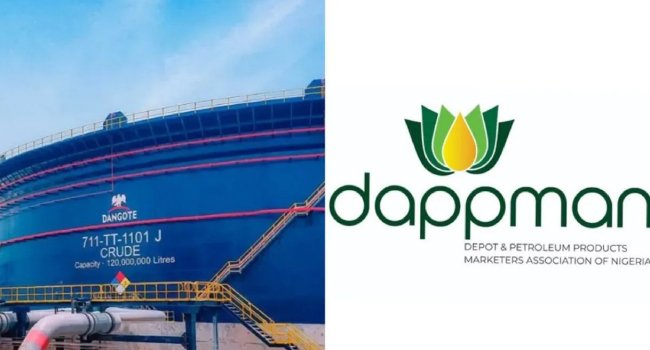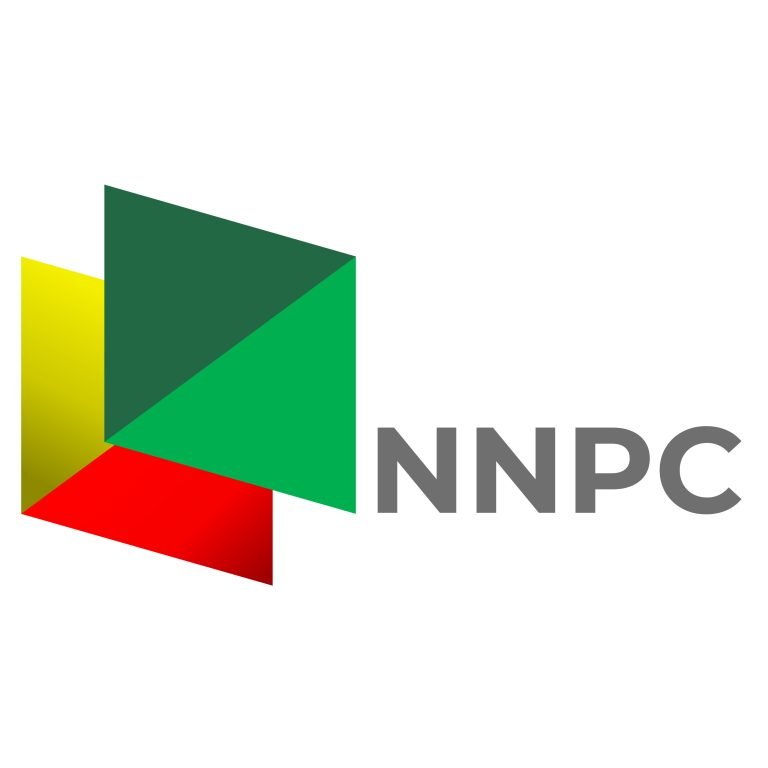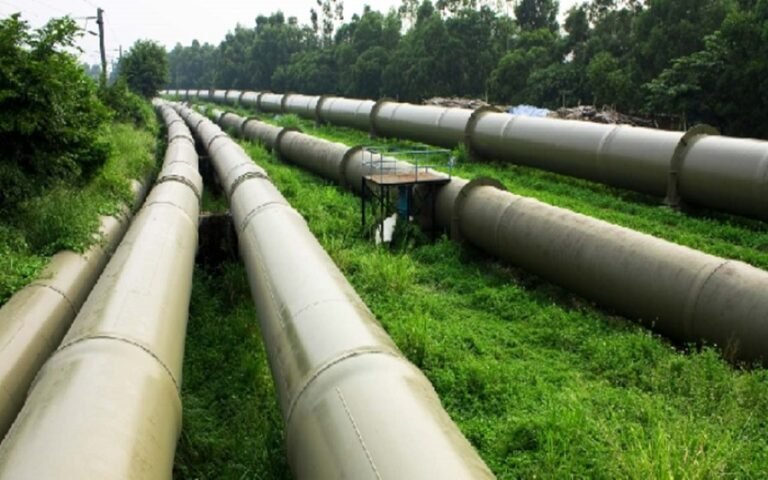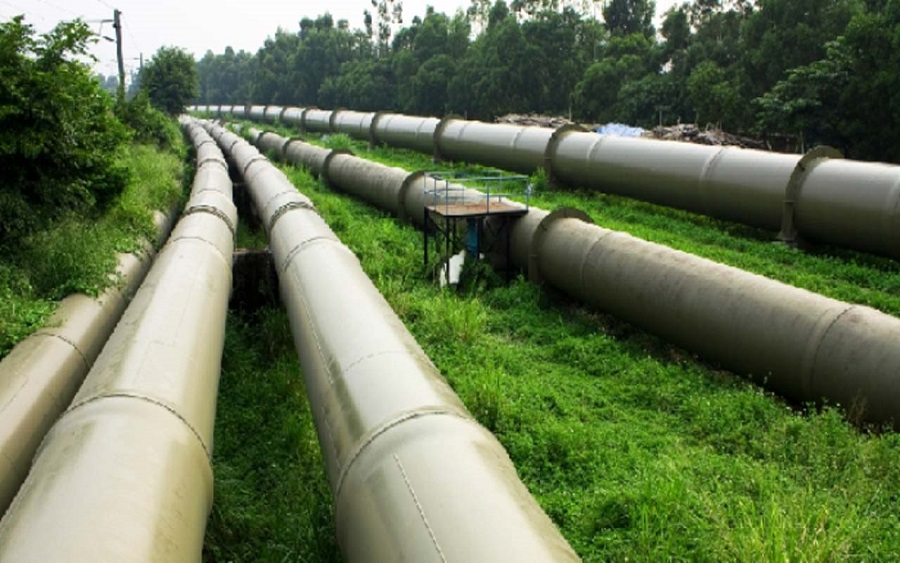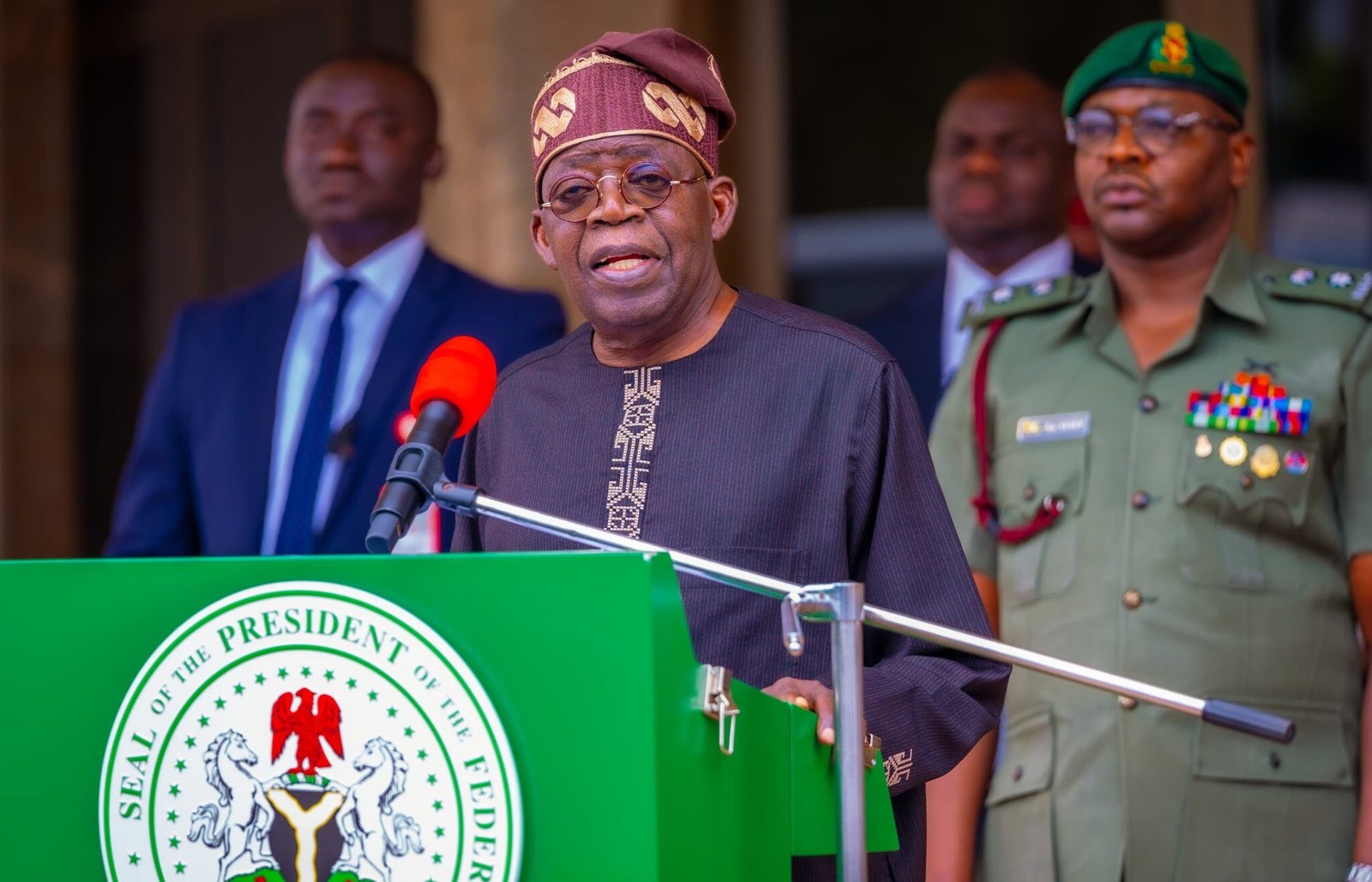Nigeria’s petroleum marketers are demanding Aliko Dangote’s $20 billion refinery provide them with subsidies worth 1.5 trillion naira ($1 billion) annually, creating a standoff that threatens to undermine the country’s energy sector reforms.
The Depot and Petroleum Marketers Association of Nigeria (DAPPMAN) is seeking 70 naira per liter for freight and loading costs, plus an additional 5 naira for pumping, applied to approximately 75 million liters of daily petrol and diesel distribution, according to energy analyst Kelvin Emmanuel.
The demands come as traditional fuel importers struggle to compete with Dangote’s newly operational refinery, which has transformed Nigeria from a petroleum importer to an exporter for the first time in decades.
“That man is asking for privileges that only the refiner who has invested $20 billion should have,” Emmanuel said during a televised interview. “If they want to be able to sell at the same price that the refinery is selling, they should put their capital together and go and invest in a refinery and compete with Dangote.”
Reform Collision Course
The dispute highlights the unintended consequences of President Bola Tinubu’s decision to end fuel subsidies in May 2023, a move that initially sent petrol prices soaring 362% over 24 months while freeing up government resources previously spent on questionable subsidy payments.
Before the reforms, Nigeria spent approximately $45 billion annually on fuel subsidies through a controversial crude oil swap program that lacked proper consumption verification mechanisms, Emmanuel noted. The country’s petroleum regulator claimed consumption figures ranging from 60 to 92 million liters daily, with current estimates at 49.6 million liters that “they cannot prove,” he said.
“About 47% of these volumes are actually not accounted for,” Emmanuel said, describing the pre-reform system where international commodity traders received Nigerian crude in exchange for refined products.
Dangote’s Disruption
The 650,000-barrel-per-day Dangote refinery, operating at 78% capacity, has fundamentally altered Nigeria’s energy landscape. The facility imports $650 million worth of crude monthly, primarily from the United States, while producing 44 million liters of gasoline daily for the domestic market.
The refinery has also begun exporting petroleum products, including gasoline shipments to America and serving as a major supplier of jet fuel to the UK and European Union. Beyond transportation fuels, the complex produces petrochemical derivatives including urea, carbon black, and polypropylene crystals.
“For the first time in the last two weeks, you can see that he exported petrol for the first time ever to America,” Emmanuel said.
Market Resistance
The success of Dangote’s operation has effectively obsoleted the business model of traditional petroleum importers, leading to resistance from established players. The Nigerian Union of Petroleum and Natural Gas Workers (NUPENG) and DAPPMAN have threatened to block the refinery’s distribution network, demanding the facility stop using its own haulage system for product distribution.
Emmanuel criticized the regulatory response, particularly from the Nigerian Midstream and Downstream Petroleum Regulatory Authority (NMDPRA), which he said lacks proper testing laboratories required under the Petroleum Industry Act.
“Most of these test results indicate a quality that is issued will not survive forensic audits,” he said, questioning whether different standards are being applied to Dangote versus traditional importers.
Economic Stakes
The stakes extend beyond petroleum pricing. Dangote’s investment includes 4,000 compressed natural gas trucks that align with Nigeria’s energy transition goals, with plans to introduce electric vehicles. The transportation fleet alone is expected to create 24,000 jobs, with each truck generating six positions.
The refinery also carries significant debt obligations, with Dangote owing $3.8 billion to international and local banks for the project’s construction, according to Emmanuel.
Government Position
The analyst suggested the Tinubu administration remains committed to market-based reforms despite pressure from traditional industry players.
“Since Dangote started producing PMS in Nigeria last year, August, Nigeria has never had strikes or queues,” Emmanuel said. “I don’t think the government is interested in going back to the past.”
The petroleum marketers face a stark choice, according to Emmanuel: “It’s either they align with Dangote Refinery or they die. If they don’t want to die then they should go and invest and build a refinery to compete with him.
For Nigeria’s broader industrialization goals, Emmanuel identified petroleum refining as one of four critical areas, alongside power generation, maritime operations, and steel production, needed to unlock economic growth.
The outcome of this dispute will likely determine whether Nigeria’s energy sector reforms survive their first major challenge from entrenched interests, or whether political pressure forces a return to the subsidy-dependent model that previously drained government resources.


